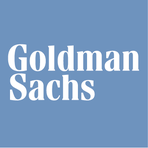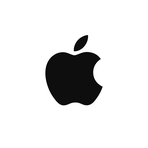Giants Fall: Goldman Sachs and Apple Hit with $89 Million Penalty
October 23, 2024, 9:35 pm
In a world where giants roam, even the mightiest can stumble. Goldman Sachs and Apple, two titans of finance and technology, have found themselves in hot water. The U.S. Consumer Financial Protection Bureau (CFPB) has ordered them to pay $89 million for consumer protection violations. This hefty fine is a stark reminder that no company is above the law.
The partnership between Goldman Sachs and Apple was once seen as a golden opportunity. They aimed to revolutionize consumer finance with the Apple credit card. The idea was simple: make purchases easier for Apple customers. But what started as a promising venture has turned into a cautionary tale.
The CFPB's investigation revealed a series of missteps. The agency found that the two companies mishandled transaction disputes. Customers faced hurdles when trying to resolve issues with their purchases. This left many feeling frustrated and powerless. In addition, there were claims that Apple misled customers about the terms of their purchases. Many believed they were buying products interest-free, only to discover otherwise. Such practices erode trust, a currency more valuable than gold.
Goldman Sachs, once a powerhouse in investment banking, ventured into consumer finance with high hopes. CEO David Solomon championed this shift, believing it would diversify the bank's revenue streams. However, the reality has been far from rosy. The consumer banking initiative has lost billions. Now, Goldman is reportedly looking to exit the Apple partnership. Other lenders view it as too risky and unprofitable. The dream of transforming consumer finance has turned into a nightmare.
The CFPB's actions are not just about punishment. They serve as a wake-up call for the industry. Companies must prioritize consumer protection. The agency's mission is clear: to ensure that consumers are treated fairly. This fine is a reminder that violations will not go unnoticed. The CFPB is watching, and it has teeth.
For Apple, the repercussions extend beyond financial penalties. The company prides itself on its brand image. It has built a reputation for quality and customer satisfaction. However, this incident tarnishes that image. Customers expect transparency and honesty. When companies fail to deliver, they risk losing loyalty. In a competitive market, trust is everything.
The fallout from this decision will likely ripple through the industry. Other companies will take note. They will reassess their practices to avoid similar pitfalls. The financial landscape is changing. Regulators are more vigilant than ever. Companies must adapt or face the consequences.
This case also highlights the complexities of partnerships. When two giants collaborate, the stakes are high. Each party must ensure compliance with regulations. A misstep can lead to significant repercussions. For Goldman and Apple, the lesson is clear: due diligence is essential.
As the dust settles, the future of the Apple credit card remains uncertain. Goldman Sachs is reportedly seeking to unwind the partnership. This could lead to a shift in how Apple approaches consumer finance. The company may need to explore new avenues or partners. The landscape is evolving, and adaptability will be key.
Consumers are left to ponder the implications of this ruling. Many may feel disillusioned. They trusted these brands to provide reliable services. Now, they must grapple with the reality of corporate mismanagement. This incident serves as a reminder that even the most reputable companies can falter.
The $89 million penalty is a significant sum, but it’s more than just a financial blow. It’s a signal to the industry. Companies must prioritize ethical practices. The CFPB's actions underscore the importance of consumer rights. In a world where trust is paramount, transparency is non-negotiable.
As we look to the future, the focus must shift to accountability. Companies must be held responsible for their actions. The CFPB's ruling is a step in the right direction. It sends a message that consumer protection is not just a checkbox. It’s a fundamental principle.
In conclusion, the saga of Goldman Sachs and Apple serves as a cautionary tale. The partnership that promised so much has unraveled under scrutiny. The $89 million penalty is a stark reminder of the consequences of negligence. As giants fall, the industry must learn from their mistakes. The path forward requires a commitment to transparency and consumer trust. Only then can companies hope to rise again.
The partnership between Goldman Sachs and Apple was once seen as a golden opportunity. They aimed to revolutionize consumer finance with the Apple credit card. The idea was simple: make purchases easier for Apple customers. But what started as a promising venture has turned into a cautionary tale.
The CFPB's investigation revealed a series of missteps. The agency found that the two companies mishandled transaction disputes. Customers faced hurdles when trying to resolve issues with their purchases. This left many feeling frustrated and powerless. In addition, there were claims that Apple misled customers about the terms of their purchases. Many believed they were buying products interest-free, only to discover otherwise. Such practices erode trust, a currency more valuable than gold.
Goldman Sachs, once a powerhouse in investment banking, ventured into consumer finance with high hopes. CEO David Solomon championed this shift, believing it would diversify the bank's revenue streams. However, the reality has been far from rosy. The consumer banking initiative has lost billions. Now, Goldman is reportedly looking to exit the Apple partnership. Other lenders view it as too risky and unprofitable. The dream of transforming consumer finance has turned into a nightmare.
The CFPB's actions are not just about punishment. They serve as a wake-up call for the industry. Companies must prioritize consumer protection. The agency's mission is clear: to ensure that consumers are treated fairly. This fine is a reminder that violations will not go unnoticed. The CFPB is watching, and it has teeth.
For Apple, the repercussions extend beyond financial penalties. The company prides itself on its brand image. It has built a reputation for quality and customer satisfaction. However, this incident tarnishes that image. Customers expect transparency and honesty. When companies fail to deliver, they risk losing loyalty. In a competitive market, trust is everything.
The fallout from this decision will likely ripple through the industry. Other companies will take note. They will reassess their practices to avoid similar pitfalls. The financial landscape is changing. Regulators are more vigilant than ever. Companies must adapt or face the consequences.
This case also highlights the complexities of partnerships. When two giants collaborate, the stakes are high. Each party must ensure compliance with regulations. A misstep can lead to significant repercussions. For Goldman and Apple, the lesson is clear: due diligence is essential.
As the dust settles, the future of the Apple credit card remains uncertain. Goldman Sachs is reportedly seeking to unwind the partnership. This could lead to a shift in how Apple approaches consumer finance. The company may need to explore new avenues or partners. The landscape is evolving, and adaptability will be key.
Consumers are left to ponder the implications of this ruling. Many may feel disillusioned. They trusted these brands to provide reliable services. Now, they must grapple with the reality of corporate mismanagement. This incident serves as a reminder that even the most reputable companies can falter.
The $89 million penalty is a significant sum, but it’s more than just a financial blow. It’s a signal to the industry. Companies must prioritize ethical practices. The CFPB's actions underscore the importance of consumer rights. In a world where trust is paramount, transparency is non-negotiable.
As we look to the future, the focus must shift to accountability. Companies must be held responsible for their actions. The CFPB's ruling is a step in the right direction. It sends a message that consumer protection is not just a checkbox. It’s a fundamental principle.
In conclusion, the saga of Goldman Sachs and Apple serves as a cautionary tale. The partnership that promised so much has unraveled under scrutiny. The $89 million penalty is a stark reminder of the consequences of negligence. As giants fall, the industry must learn from their mistakes. The path forward requires a commitment to transparency and consumer trust. Only then can companies hope to rise again.

